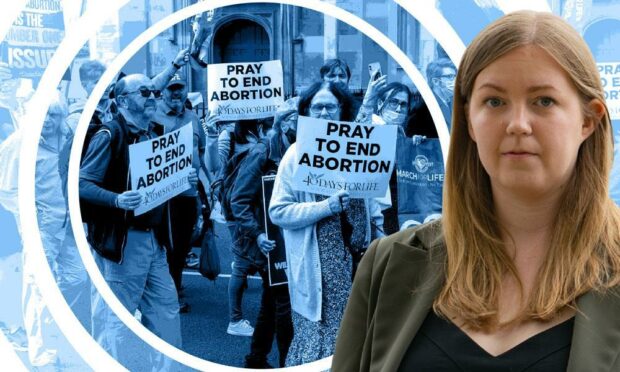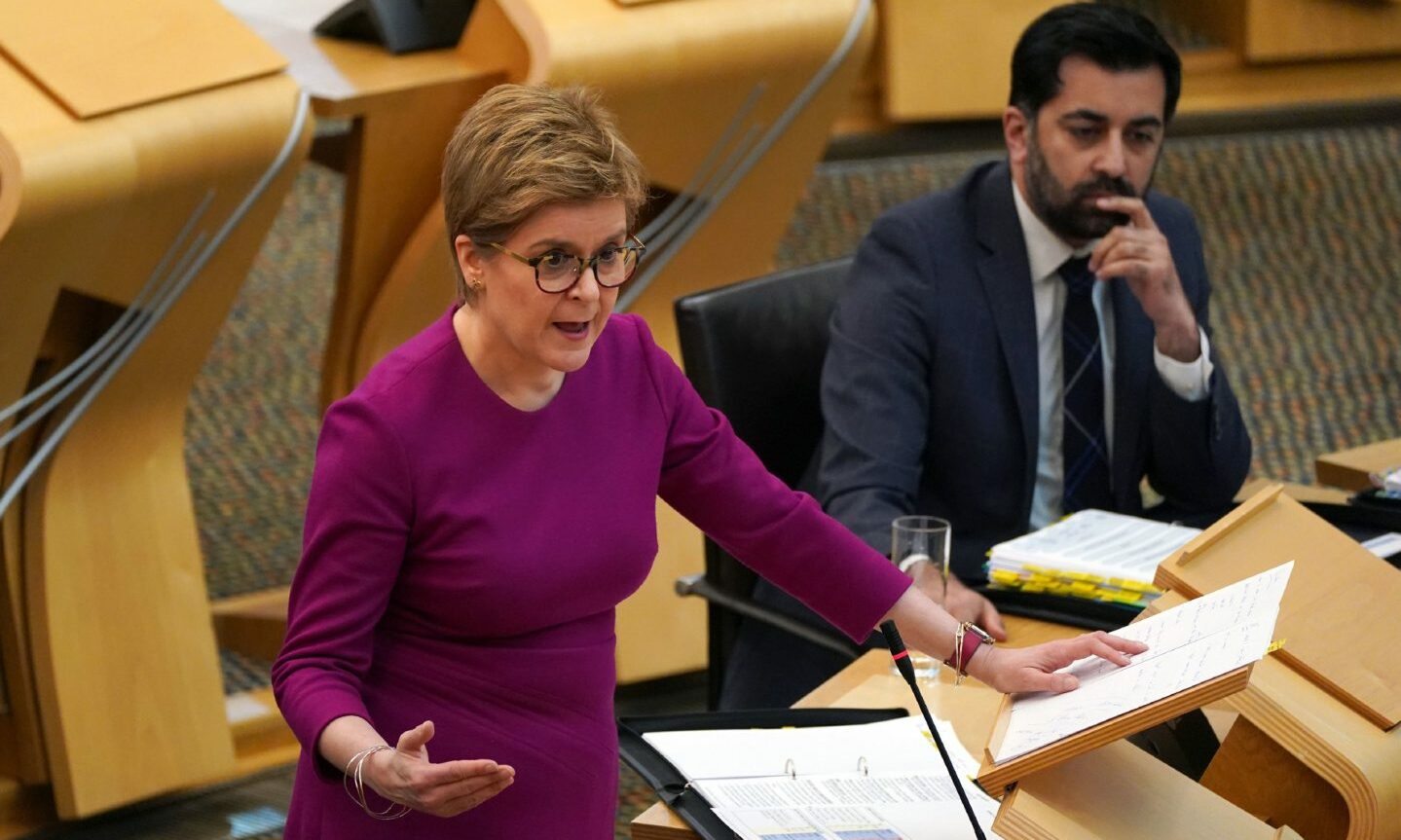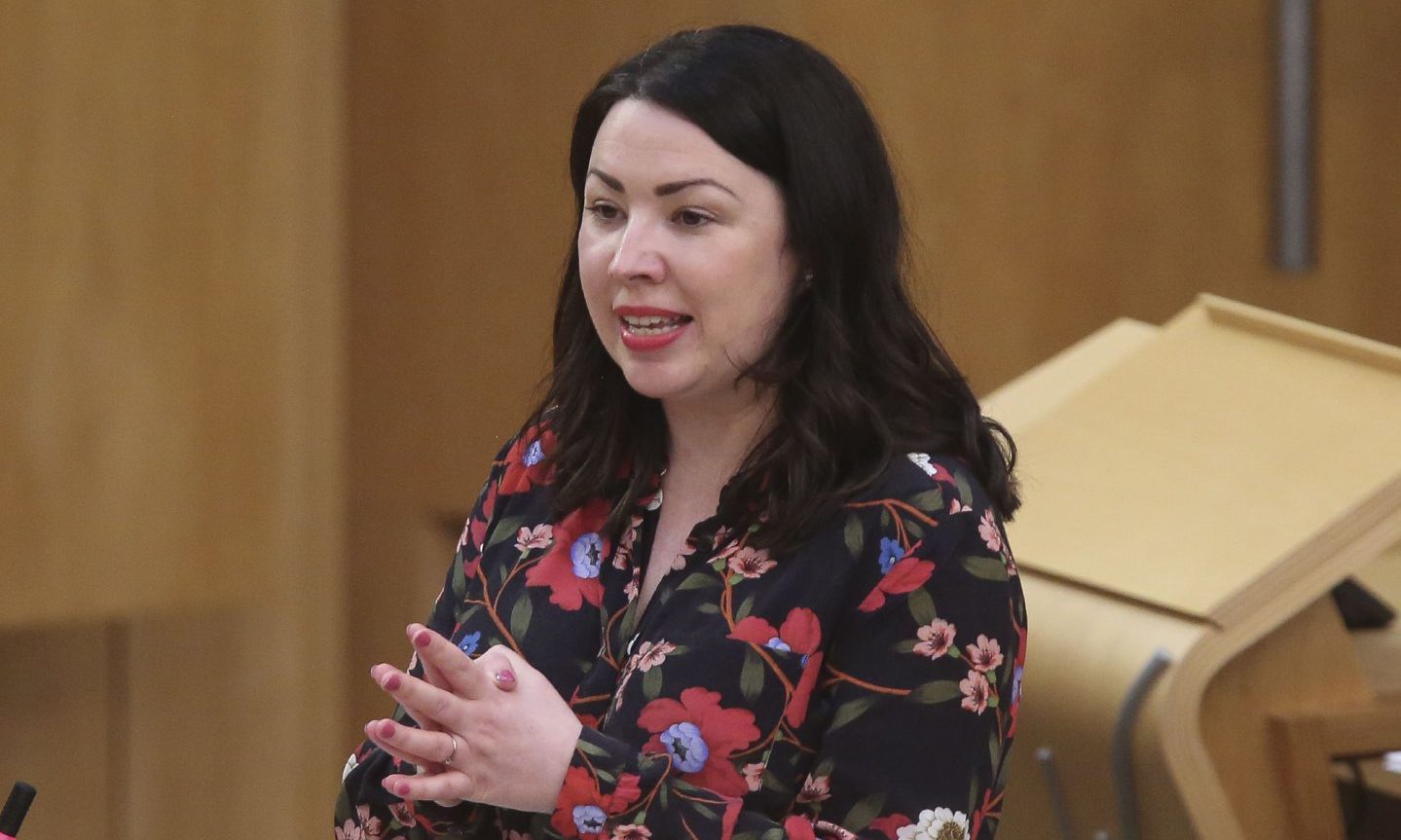Members of the public are being given a say over plans for buffer zones outside abortion clinics where women have felt harassed and intimidated.
MSP Gillian Mackay opened a consultation at Holyrood on May 19 which she hopes will lead to a new law for Scotland.
The proposals come after weeks of protests held by anti-abortion campaigners outside Aberdeen, Glasgow and Edinburgh hospitals.
Here’s all you need to know about the proposed law – and how it would work.
What are buffer zones?
Under current laws, anti-choice demonstrators can still protest outside clinics if they remain peaceful.
However, new buffer zones would create a designated space near hospitals where they are no longer allowed to hold rallies.
Zones would potentially cover an area of over 100 metres, ensuring anti-abortion campaigners would be a significant distance away.
Nicola Sturgeon has repeatedly urged protesters to gather at Holyrood instead of abortion clinics since that’s where laws are made.
The first minister had previously said there were some difficult legal issues around introducing them which would have to be resolved.
Why should buffer zones be introduced?
Pro-choice campaigners say buffer zones would allow all women to access abortions across Scotland without fear of intimidation or harassment.
Launching her consultation, Ms Mackay said: “For too long people wishing to access healthcare where abortions are provided have risked facing intimidation from protestors gathered outside these facilities.
“It is time we ensured that everyone who needs to access abortion services can do so free from intimidation and harassment.”
Labour MSP Monica Lennon has also strongly backed calls to introduce buffer zones outside abortion clinics.
She said recently: “150-metre buffer zones won’t end protest, but will protect those accessing legal abortion from unnecessary trauma.”
The first minister has also insisted women should be able to terminate pregnancies without fear or harassment.
She said: “Everybody, everybody without exception, should have the right to access healthcare without fear and intimidation.”
Lucy Grieve, who runs campaign group Back Off Scotland, said: “Anti-abortion harassment causes real, tangible threats to accessing healthcare services here in Scotland, and it has been allowed to go on unchallenged for too long.”
Would the proposals have support?
A bill on buffer zones in Scotland would have a strong chance of passing with cross-party support.
Ms Sturgeon said ministers were “actively considering” how legislation could be passed on the matter.
She agreed to Ms Lennon’s calls for an emergency summit to be held on abortion healthcare.
The first minister also added that she would support local councils in using bylaws to prevent protests outside clinics.
While major parties can likely count on the support of MSPs, there are some Holyrood politicians who oppose abortion.
SNP MSP John Mason admitted to previously attending an anti-abortion “vigil” outside a hospital.
Last week he urged the first minister to consider lowering the 24-week limit for terminating pregnancies.
He has also claimed clinics “push” women to have abortions.


